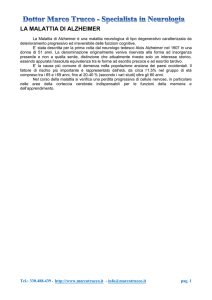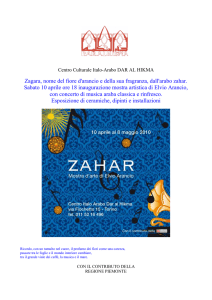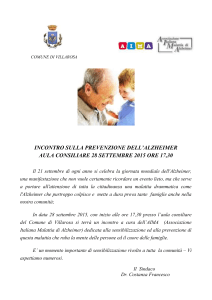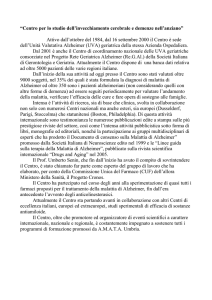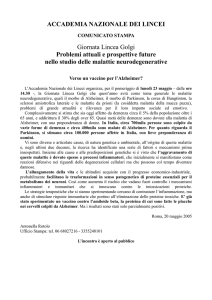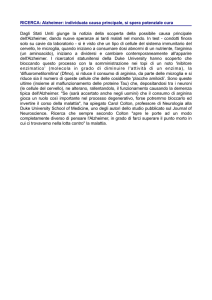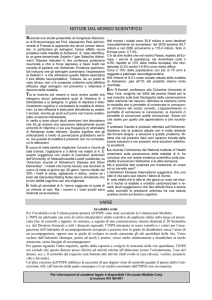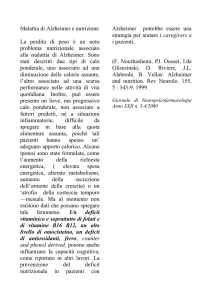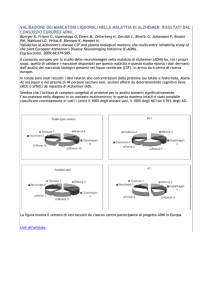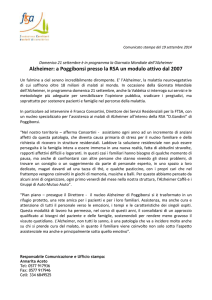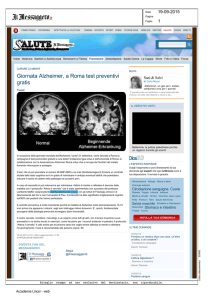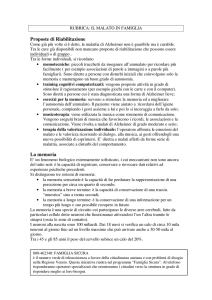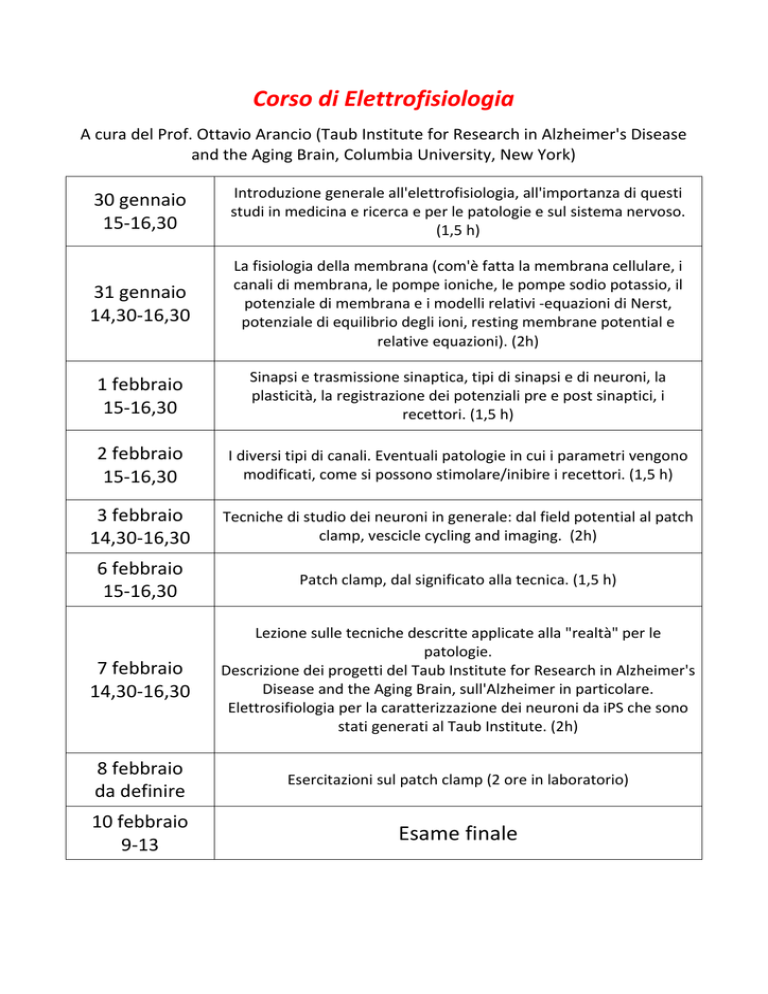
Corso di Elettrofisiologia A cura del Prof. Ottavio Arancio (Taub Institute for Research in Alzheimer's Disease and the Aging Brain, Columbia University, New York) 30 gennaio 15‐16,30 Introduzione generale all'elettrofisiologia, all'importanza di questi studi in medicina e ricerca e per le patologie e sul sistema nervoso. (1,5 h) 31 gennaio 14,30‐16,30 La fisiologia della membrana (com'è fatta la membrana cellulare, i canali di membrana, le pompe ioniche, le pompe sodio potassio, il potenziale di membrana e i modelli relativi ‐equazioni di Nerst, potenziale di equilibrio degli ioni, resting membrane potential e relative equazioni). (2h) 1 febbraio 15‐16,30 Sinapsi e trasmissione sinaptica, tipi di sinapsi e di neuroni, la plasticità, la registrazione dei potenziali pre e post sinaptici, i recettori. (1,5 h) 2 febbraio 15‐16,30 I diversi tipi di canali. Eventuali patologie in cui i parametri vengono modificati, come si possono stimolare/inibire i recettori. (1,5 h) 3 febbraio 14,30‐16,30 Tecniche di studio dei neuroni in generale: dal field potential al patch clamp, vescicle cycling and imaging. (2h) 6 febbraio 15‐16,30 Patch clamp, dal significato alla tecnica. (1,5 h) 7 febbraio 14,30‐16,30 Lezione sulle tecniche descritte applicate alla "realtà" per le patologie. Descrizione dei progetti del Taub Institute for Research in Alzheimer's Disease and the Aging Brain, sull'Alzheimer in particolare. Elettrosifiologia per la caratterizzazione dei neuroni da iPS che sono stati generati al Taub Institute. (2h) 8 febbraio da definire Esercitazioni sul patch clamp (2 ore in laboratorio) 10 febbraio 9‐13 Esame finale About Ottavio Arancio Ottavio Arancio is Associate Professor of Pathology & Cell Biology at the Columbia University Medical Center. He received his Ph.D and M.D. from the University of Pisa in Italy. Dr. Arancio has held Faculty appointments at Columbia University, NYU School of Medicine, and at SUNY HSCB. In 2004 he became Faculty member of the Department of Pathology and Taub Institute for Research on Alzheimer’s Disease and the Aging Brain at Columbia University. His honors include the G. Moruzzi Fellowship (Georgetown University), the Anna Villa Rusconi Foundation Prize (Italy), and the INSERM Poste vert Fellowship (France). Dr Arancio is a cellular neurobiologist who has contributed to the characterization of the mechanisms of learning in both normal conditions and during neurodegenerative diseases. During the past decade he has pioneered the field of mechanisms of synaptic dysfunction in Alzheimer’s disease. Dr. Arancio’s laboratory has focused primarily on events triggered by amyloid protein. These studies, which have suggested new links between synaptic dysfunction and amyloid protein, are of a general relevance to the field of Alzheimer’s disease both for understanding the etiopathogenesis of the disease and for developing therapies aiming to improve the cognitive symptoms. More info and interviews at the link: http://bigthink.com/ottavioarancio

